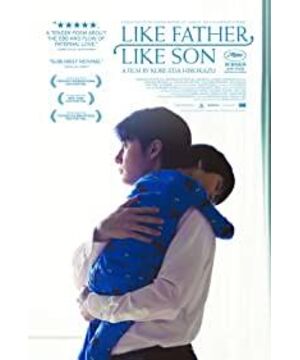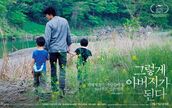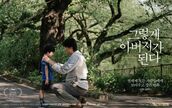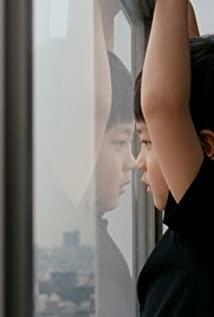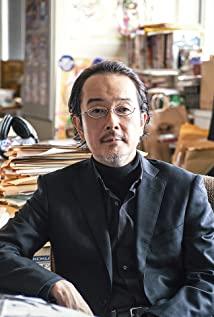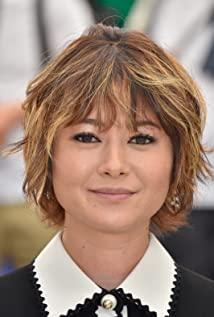It was Hirokazu-eda who was not a particularly outstanding director in terms of narrative and visual style, so I didn't have much impression of him at the time. Later, I learned from the information of Japanese films that I kept getting, that it was Hirokazu Koreeda who was known as a Japanese director who inherited the style of Ozu, and his works were frequently awarded internationally. But it still didn't arouse my desire to watch his works, probably because the first time I saw his films, I was not impressed.
Until I saw the subject matter of the film "Air Figure", it was easy to be interested. It was too easy to fall into the spectacle display and the usual erotic expressions of Japanese directors, at most, the sigh of the lonely life of Japanese diaosi. But Hirokazu Kore-eda took a different approach and expressed his views on loneliness and love in another dimension through the personification of the air doll played by Bae Doona. This is a thoughtful director.
Going back to this movie, the subject matter of this movie is actually relatively easy to be bloody. The simple expression of family ethics, the saliva disputes between families, and even the family crisis caused by the derailment of the woman are all clichés that are easy to fall into. Unlike the way many event-driven stories are handled, Hirokazu Kore-eda starts more with the characters themselves. This makes it easier for him to detach himself from the cliché of the fact. The social relations of the main characters in the film are very open, and the amount of information in the film is actually very large.
The film mainly presents two families. Many of the fathers of the Nonomiya family are typical Japanese successful people. They are well-paid, busy, tough, self-centered, strict with their children's tutoring, and hope that their children will become dragons. At the stall of "stepping on the accelerator all the way", he unexpectedly learned that his son was not his own. The situation for the Zhaimu family seems to be the opposite. Xiongda, who guards the dilapidated home appliance store, runs a family of five. Living a poor life and enjoying himself, he does not interfere too much with the growth of his children, but only loves his children by virtue of his fatherhood.
The differences between the two families led to completely different reactions when the child swap incident was uncovered. Many immediately decided to resort to the law, and were concerned about how to obtain custody of their own children. Even want to raise two children at the same time. And Xiongda is more thinking about how to get more compensation and make his family live better. Many attitudes hurt the Saimu family, and his family crisis is gradually exposed. Many relationships with their children are actually the epitome of family alienation in modern cities. Many people who hope to become dragons have given their children the best material life and educational conditions, but because of the absence of fatherly love, the education of their children has failed. And many relationships with wives are not as harmonious as they appear.
The disclosure of the sub-event is the film's first plot point. Brings out the characters of the two families. And the second plot point, the trial of the child swap, reveals much more about the hero's family ties and the beginning of a redemptive journey as a father.
In the court, the nurse who carried out the child replacement recounted the incident and expressed her apology. Unlike other people's anger at nurses, many think more about their stepmother. It is also a remarriage, and the nurse's way of venting her incompatibility in the new family is to change the child. On the other hand, his mother forbeared and raised many brothers who were not her own as her own children. Many have been unwilling to admit their stepmother. Unlike the stepmother's point of view, many fathers are defenders of traditional ethical concepts. He believes that many must return their children, after all, he has the blood of the family flowing through him.
The exchange of children is the third plot point of the film. The unfamiliar and biological Liu Qing came to her home. At the same time, because the incident affected the company, many of them needed to spend more time with the child. Liu Qing, who grew up in a relaxed family, agrees more with fatherly love rather than cold dogma. Liu Qing's "rebellion" made many people reflect on their education for children. Liuqing changed the family to a certain extent, and many began to play with Liuqing and understand the child's world. Because of the rules of the game to exchange children, many couples have time to compare the two children. A lot of adherence to flesh and blood is gradually broken in the process. The climax of the film is that a lot of people notice his child Keita taking pictures of himself, and he finally realizes how little he cares about his children's world.
In the fourth plot point of the film, many finally decided to switch back to Keita. It is not so much that many decisions are made because flesh and blood cannot match family affection, it is better to say that many of them finally know how to redeem themselves. He wants to really love Keita.
Flesh and blood cannot match family affection or family affection cannot match flesh and blood is the war of words that such family ethics films are prone to fall into. It was Hirokazu Kore-eda who did not dwell on this too much, but proposed a "love" with more universal value in modern society to solve all this. Behind this is the consistent expression of Hirokazu Koreeda's understanding of family relationships and his own values. In "Never Stop", the father has always refused to admit the son who is unwilling to inherit the family business, because it is a Japanese tradition for the son to inherit the father's business, so the father's influence is rather the family influence formed under the traditional concept. In "Like Father Like Son", it was Hirokazu Koreeda who went a step further to challenge traditional ethical concepts with a more profound "non-biological" approach. Among the many struggles and redemptions of the hero's father, Hirokazu Koreeda tried to convey more universality. concept.
It is Hirokazu-eda's narrative that follows the usual standard strategy of beginning, development, climax, and ending. However, due to the full development of the character-driven narrative and the relationship between the characters, the audience does not feel the rupture of the narrative at all. All characters have a past, present and future, and the extensibility and subtext of the narrative is very rich and memorable. As a documentary director, Hirokazu Kore-eda has a keen sense of touch that many other directors do not have. He is very delicate in writing about the daily life of the family, and he is very good at capturing the subtle changes in the expressions of child actors. Therefore, he can make films with children's perspectives such as "Nobody Knows" and "Miracle".
It is Hirokazu-eda who is a rare director in this era, and his delicate portrayal of characters is worth learning. His films are neither dazzling nor extreme, but the themes conveyed are profound, and there is a master demeanor in the bland.
View more about Like Father, Like Son reviews


